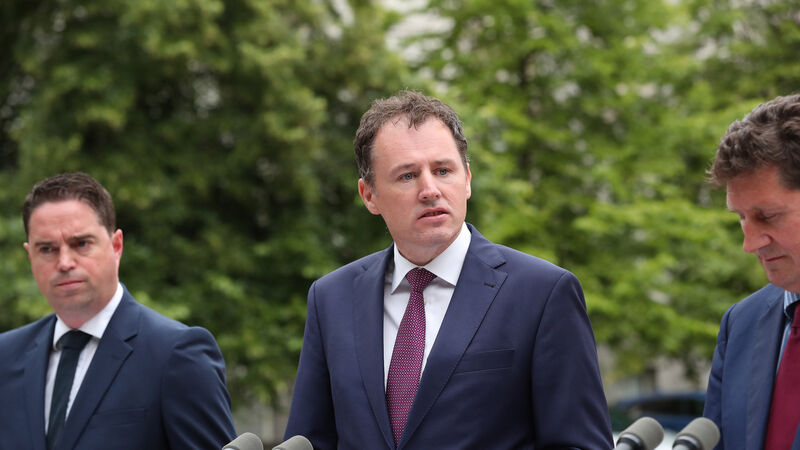Charlie McConalogue: I back farmers to meet the emissions targets

(Left to right) Martin Heydon, Minister for Agriculture, Charlie McConalogue and Minister for Environment, Climate and Communications, Eamon Ryan announcing the Sectoral Emissions Ceilings at Government Buildings on Thursday. Picture: Conor Ó Mearáin / Collins Photos
It is just over 100 years since the first combustion tractor engine rolled into an Irish field. In the proceeding 100 years, our great agri-food sector has evolved into a hub of technology, research and continuous development.
Even Henry Ford, who can trace his roots to a farm in West Cork, and developed the truly pioneering Fordson T tractor, could hardly have imagined the progress that the agriculture sector has made in the past century.
CLIMATE & SUSTAINABILITY HUB
















